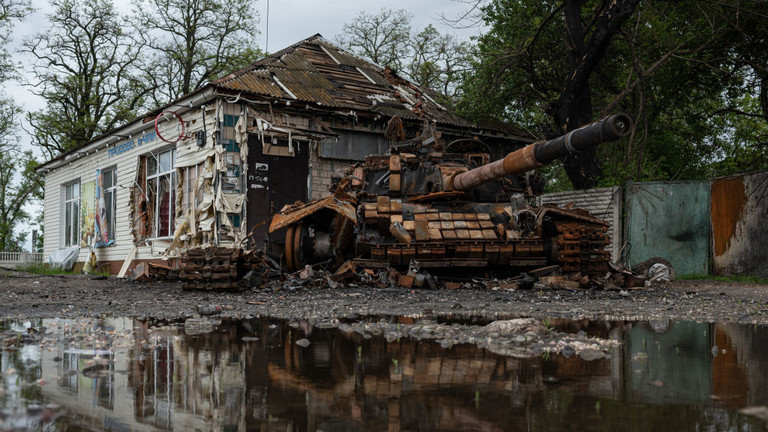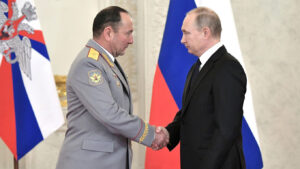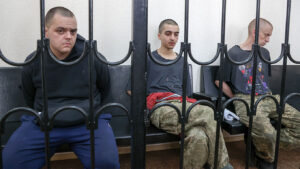
STRATEGIC ASSESSMENT. Authorities in Kyiv said Ukrainian forces had launched missile strikes and drones from the coast on June 21, destroying Russian military vehicles, anti-aircraft defences and a radar system on Snake Island, a piece of rock smaller than 0.7 square kilometres located about 40km southwest of Odesa.
The Russian military denied the claims, saying its defences held up as its forces on the island intercepted all the Ukrainian missiles and shot down 13 of the 15 drones.
This ferocious contestation of the narrative says a lot about how important Snake Island is to both Kyiv and Moscow. While it is difficult to discern where the truth lies, it is certain that “Ukrainian missiles did, indeed, hit military targets” on the island, according to Sim Tack, an analyst at the US military consultancy Force Analysis.

Tack studied satellite images of Snake Island after the offensive. “We can see the impact of the bombing,” he said. “We can also see the Russian Pantsir anti-aircraft vehicles that were supposedly destroyed, although it’s difficult to see whether or not they’re still operational.”
It was not the first time Ukraine has targeted Russian positions around the island. On June 17, Kyiv claimed it had sunk a tugboat transporting munitions to Russian troops.
This came after Ukraine launched several offensives in May trying to recapture Snake Island. In response, the Russian military reinforced its presence there.
Ukrainian President Volodymyr Zelensky has shared video footage that reportedly shows a Russian missile hitting a shopping mall in the central Ukrainian city of Kremenchuk. At least 20 people died as a result of the explosion Monday, with tens more injured.
Zelensky has previously accused Russia of carrying out “calculated strikes” on Ukraine’s civilian infrastructure, writing on social media that “only total insane terrorists, who should have no place on Earth, can strike missiles at civilian objects.”
The Kremlin claimed that the mall explosion was the result of a Russian strike on a nearby weapons depot. It also said that the shopping complex was closed at the time of the strike.
Official statements and footage released by Russia’s Defense Ministry suggests the Kremlin has reshuffled the country’s military command structure in recent weeks, according to analysts, as the ongoing Russian offensive in Ukraine yields few territorial gains.
Russian Deputy Defense Minister Gennady Zhidko’s appearance alongside Defense Minister Sergei Shoigu on a visit to eastern Ukraine over the weekend prompted speculation that Zhidko had been made the new commander of Russia’s military campaign.
General Alexander Dvornikov, who was reportedly previously in charge of the Russian offensive, has not been seen in public for weeks.
“It appears to confirm that Colonel-General Gennady Zhidko is the commander of Russian forces in Ukraine,” tweeted military analyst Rob Lee of the Defense Ministry footage.
A restructuring of Russia’s top command is likely an attempt by Moscow to improve its Armed Forces’ performance in Ukraine, which have failed to make rapid progress despite significant superiority in ammunition and equipment.

“Drastic rotations within the Russian military, if true, are not actions taken by a force on the verge of a major success,” said the Institute for the Study of War, a U.S. think tank.
Despite some significant victories in Ukraine’s east near the town of Popasna and the strategic city of Sievierodonetsk in recent weeks, Russia’s advance has been slow and, according to analysts, likely resulted in high casualty rates.
The Russian command is “experimenting due to issues [on the battlefield] and are trying not to lose this war,” independent military analyst Pavel Luzin told The Moscow Times.
Rumors of Zhidko’s promotion were first reported in early June by the Conflict Intelligence Team, an independent investigative outlet.
Prior to being appointed as a deputy defense minister responsible for “military-political” work last year, Zhidko served as the head of the Eastern Military District and was involved in Russia’s military intervention in Syria in support of President Bashar al-Assad.
Fighting against Russia with Western help is the only way forward for Ukraine, NATO members told President Volodymyr Zelensky, the Belgian prime minister said on Wednesday.
“We make it very clear that this war can only be won on the battlefield and we should continue to support President Zelensky and the Ukrainian population as much as possible to be able to win the war on the battlefield,” Belgian Prime Minister Alexander De Croo told journalists on the sidelines of the NATO summit in Madrid.
He said he had the chance to personally interact with and encourage Zelensky and pointed out that his country was among the first to offer military support to Kiev and will continue sending arms to Kiev, he assured.
“NATO support in the broad sense has been there from the start, and will continue to be there,” he added.
NATO nations have been training Ukrainian troops since the 2014 armed coup in Kiev. When Russia launched its offensive against Ukraine more than four months ago, it cited the military bloc’s eastward expansion as a key reason. Moscow perceives NATO as a hostile organization and a threat to its national security.
The Belgian prime minister also said that Ukraine was given a strong gesture of support by the EU, when it was offered candidate status last week. He said Brussels also sent “a very important message” about EU enlargement to Moldova, which became a candidate too.
“Some people will say: ‘Well, it’s symbolic’. But symbolic messages are extremely important today,” De Croo said, referring to the fact that EU nations expect neither Ukraine nor Moldova to join them as fully-fledged members anytime soon.
The Belgian PM praised the ongoing NATO summit as a success, due to Turkey lifting its objections to Sweden and Finland joining the alliance, which was announced on Tuesday.
Shaun Pinner, a captured British citizen who had been fighting for the Ukrainian Army, has appealed his death sentence, the top court in the Donetsk People’s Republic (DPR) told TASS on Wednesday. The court now has up to two months to review the verdict.
According to TASS, Pinner’s locally appointed lawyer asked the court to reduce the sentence to life imprisonment.
Pinner was captured by Russian and Donbass troops during the siege of Mariupol, and was accused by the DPR of being a mercenary and waging an illegal war against the republic.
He was sentenced to death this month along with another British national, Aiden Aslin, and Saadoun Brahim, who is originally from Morocco.
The British government said it was “appalled” by the verdict and promised to fight for the release of Pinner and Aslin. Foreign Secretary Liz Truss said that Aslin and Pinner should be treated as POWs, not mercenaries, and called their trial in Donetsk a “sham judgment with absolutely no legitimacy.”

The Kremlin maintains that the trial itself and the sentencing is the domestic affair of the DPR.
Andrey Kelin, Russia’s ambassador to the UK, said last week that he had received a “contemptuous and condescending” letter from London regarding the two captured Britons. The tone of message was “not a call for dialogue,” he added, advising the UK government to contact the DPR authorities directly (Red/many sources).





